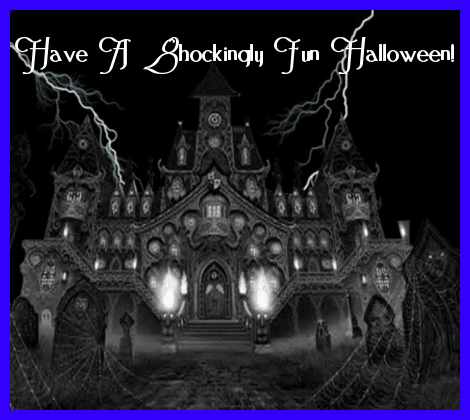Posted on 10/31/2014 5:58:45 PM PDT by AZamericonnie
In the German Romantic tradition of 200 years ago, death was a constant companion. It could be handled sentimentally, with horror, in the Greek Classical tradition, or with Christian imagery. German poets of the era each had their own take on the subject.
Franz Schubert received his musical training at the Vienna Choirboys School from the headmaster, Antonio Salieri. (Yes, that Salieri!) Old Tony ran a musical gym for young Frannie, giving him old opera libretti in Italian and having the teenager set the text to music. It was from Tony that Frannie received a thorough grounding in opera. It was Schubert’s goal to be the next great opera composer after Mozart, a goal he was never to achieve. His gift was song, and Tony taught him to graft the North German art song based on poetry to the Italian style.
Matthias Claudius was a German poet of the second rank, whose dates (1740-1815) put him contemporaneous with the English Classical period before Romanticism blew the cover off poetry. Yet his German poetry relates better to Shelley than to Alexander Pope or anyone else of his period. Schubert was only 20 when he set Claudius’ “Death and the Maiden” to music.
In Vienna of that period, Death always spoke in D minor, thanks to Mozart and the Commendatore in “Don Giovanni”. Frannie begins with a statement of the theme in that key as a prelude on the piano. The Maiden, perceiving the skeletal aspect of Death, sings the opening verse with horror and trepidation. Death answers by singing around the opening theme, which remains on the piano.
This is Dietrich Fischer-Dieskau accompanied by Gerald Moore. The video contains both German and English text upon expansion.
Frannie knew when he a great tune on his hands, so he decided to write a set of variations on this song and place it in a string quartet. Thanks to the Sword of Damocles, in the form of syphilis, hanging over his head, Schubert’s music made a quantum leap in his last five years. It was a mixture of secondary syphilis and typhoid that finished him off at age 31, and he managed to avoid the tertiary phase that destroyed the minds of Baudelaire, Smetana and Scott Joplin before they died. Being bisexual is dangerous to your health! Schubert’s last three quartets are monuments to the genre, and the slow movement of his Quartet in D minor is a set of variations on “Death and the Maiden” in G minor.
He starts by stating the theme directly. You’ll remember it from the song.
At 2:10, Variation #1 has the first violin play around the theme.
At 4:14, Variation #2 gives the theme to the cello while everyone else plays around her.
At 6:33, Variation #3 breaks the theme into smaller fragments.
It was de rigeur that a variation be in the opposite mode, so Schubert at 8:29 writes Variation #4 in G Major. It’s sentimental, but not but too much so. In fact, it’s heartbreaking.
At 10:37, Variation #5 returns to the minor with the second violin and viola taking the theme, with the cello playing a ground bass. It cascades into pure joy before settling down.
At 12:11, the theme returns, but with a trick. Schubert creates a small church organ effect with just four string instruments. It ends peacefully with a wan smile.
The Borromeo Quartet uses their laptops to display the score, rather than sheet music. Score one for modern technology!
Woohoo for you and have a safe drive! I know your family will be so happy to have you closer! (((hugs)))
Thank You for the Tribute to Jack Bruce, Drumbo ((((HUGS))))
I wish we’d had laptop scores when I was in band! Much easier to read, I’ll betcha! LOL!
They use a foot pedal to change pages. There is software that can actually follow the score and change pages automatically, but musicians don’t trust it.
NO! We have to turn the clocks FORWARD, right?

In the late 60s I worked in a shipyard where people would argue, lose their tempers and almost come to blows.....arguing on whether or not to turn the clocks back or forward.....and it did not matter whether it was spring or fall! ;-)
*sigh*
LOL


~ Good Evening! ~

 |
 |
 America demands Justice for the Fallen of Benghazi! |
 |
 |


I wouldn’t either. Conductors have a habit of following their OWN set of rules. LOL!
Spring Ahead,
Fall back
unless you live in Arizona or Hawaii.
It’s odd how such liberal(Arizona not so liberal, but Hawaii is off the charts!) states can be so SENSIBLE about DST!
Paul Dukas wrote a symphony and quite a bit of chamber music, but he is remembered today for just one piece, which achieved immortality when Walt Disney animated it in his 1940 film, “Fantasia”. It’s fascinating just how dissonant this piece is, but when you’ve heard it a few hundred times, the dissonances just seem natural.
This is Wolfgang Sawallisch conducting the NHK Symphony of Japan.
Leopold Stokowski cut a bit from the original score to match Disney’s images of Mickey Mouse, the Wizard and his runaway brooms. This is from “Fantasia”.
Still Listening to “Symphony Fantastique” but I’ll get to it! LOL!
“Spring Ahead,
Fall back”
Shhhhh! Maybe some of those shipyard workers are reading the Canteen! It is much more fun to watch and listen to them argue! ;-)
Take your time. There is a lot to post tonight. Then there is the religious side of death for the Chapel and All Souls Day.
Back to back - Belly to belly - it's the Zombie Jamboree!


Point/Counterpoint!


Disclaimer: Opinions posted on Free Republic are those of the individual posters and do not necessarily represent the opinion of Free Republic or its management. All materials posted herein are protected by copyright law and the exemption for fair use of copyrighted works.